The Faculty of Arts & Science Outstanding Teaching Awards recognize teaching excellence in undergraduate and graduate education with a focus on classroom instruction and course design and/or curriculum development.
Congratulations to this year's recipients:
Jotaro Arimori — East Asian Studies
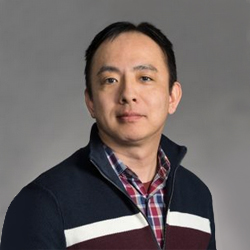 Associate Professor, Teaching Stream Jotaro Arimori teaches Japanese language courses in the Department of East Asian Studies, where his students remark on his exceptionally friendly, patient, dedicated and inclusive approach to creating a stimulating learning environment.
Associate Professor, Teaching Stream Jotaro Arimori teaches Japanese language courses in the Department of East Asian Studies, where his students remark on his exceptionally friendly, patient, dedicated and inclusive approach to creating a stimulating learning environment.
In addition to his work in the classroom, Arimori is a tireless organizer of co-curricular activities that engage students in learning and socialization outside the classroom. He also incorporates a commitment to classroom inclusivity into his research, mounting conference presentations and publications on equity and diversity in teaching Japanese — a language he believes can perpetuate gender bias.
One of Arimori’s students remarked on “his sincere and serious dedication to enabling each and every student,” a commitment reflected in his ongoing attention to student mental health and wellness, which includes a workshop he constructed on pedagogy and student anxiety to be offered in the summer.
Arimori is “the type of teacher who students remember long after they graduate,” says Andre Schmid, former chair of the department. “He makes the University of Toronto a better place to work and a better place to learn.”
Jessica D'eon — Chemistry & School of the Environment
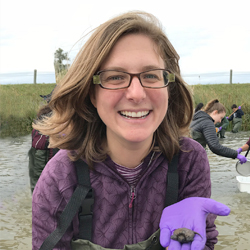 Jessica D’eon, an associate professor, teaching stream in the Department of Chemistry and undergraduate associate director of the School of the Environment, regularly teaches a large first-year chemistry class along with specialized upper-year courses in environmental chemistry.
Jessica D’eon, an associate professor, teaching stream in the Department of Chemistry and undergraduate associate director of the School of the Environment, regularly teaches a large first-year chemistry class along with specialized upper-year courses in environmental chemistry.
Students regularly remark on her enthusiasm, kindness and openness, all of which “create a calm learning environment where one does not feel afraid to ask questions or ask for help.”
Employing project-based and participatory learning techniques, D’eon shows students that chemistry need not be a solitary discipline but can be studied as part of larger contexts and networks. For example, she asks students to simulate the role of a scientific advisor to a delegation of legislators; and she leads a course that facilitates knowledge exchange between chemistry and engineering students.
Outside of the classroom, D’eon works with the School of the Environment’s undergraduate program and regularly participates in conferences and symposia on chemistry education. She is a key contributor to curriculum renewal and design and boasts consistently stellar course evaluations and strong enrolment numbers. D’eon works with students at all levels, from high school summer researchers to graduate students and postdoctoral fellows, and always elicits exceptionally high praise from her mentees.
Alistair Dias — Human Biology
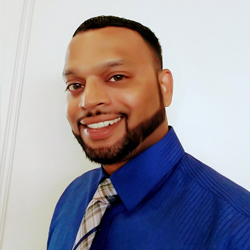 An associate professor, teaching stream in the Human Biology program, Alistair Dias teaches lab courses in human biology, genetics and health and disease while also introducing students to integrative medicine and the biology of metals in seminar based upper level courses. His enthusiastic, approachable, student-focused manner makes students “feel like more than numbers in a large institution.”
An associate professor, teaching stream in the Human Biology program, Alistair Dias teaches lab courses in human biology, genetics and health and disease while also introducing students to integrative medicine and the biology of metals in seminar based upper level courses. His enthusiastic, approachable, student-focused manner makes students “feel like more than numbers in a large institution.”
Student feedback has regularly highlighted Dias’s successful integration of critical-thinking exercises, practical examples, participatory learning and multimedia tools to foster student engagement and learning.
Dias’s pedagogical approach is based on evolving research and scholarship on teaching and learning, reflected in his essential ongoing contributions to the program’s curriculum, including key updates and modernization to pivotal upper-year lab courses. This work on pre-lab videos and lab manuals to prepare students for lab work has been so successful that other departments have adopted it.
In addition to his work in the classroom, Dias has taken on active mentorship of teaching assistants, resulting in increased TA confidence and skill, as well as widespread TA training practices across the program. He has also been involved in the program’s First Year and Second Year Learning Communities — small support groups of students that meet for academic and social activities. Dias is lauded as not only an effective educator but a professor who genuinely and compassionately cares for his students.
Gillian Hamilton — Economics
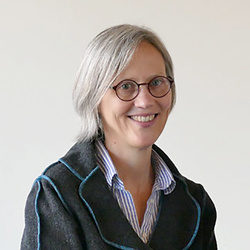 Associate Professor Gillian Hamilton is recognized for both her exceptional teaching and her unwavering efforts in leading, modernizing and expanding the undergraduate curriculum of the Department of Economics.
Associate Professor Gillian Hamilton is recognized for both her exceptional teaching and her unwavering efforts in leading, modernizing and expanding the undergraduate curriculum of the Department of Economics.
Hamilton’s design and delivery of a course on pre-1850 Canadian economic history is structured to help students develop and practice their critical thinking and analysis skill, both with the instructor and through participatory collaborative exercises with each other — with one student remarking that Hamilton’s course helped them “learn how to think better."
Ettore Damiano, professor and chair of Department of Economics, commends Hamilton for her ongoing commitment to considering the evolving needs of students and fostering experiential learning opportunities that build connections to communities outside the University.
In addition to her work in the classroom, Hamilton’s tenure as associate chair, undergraduate affairs has made the past five years “transformative,” says Damiano. Hamilton’s dedication to curriculum renewal, expansion of applied courses, and creation of more research opportunities for senior undergraduates has meant that the department continues to offer students a depth and breadth of learning and training that ensures their future success.
Moreover, Hamilton has spearheaded a weekly teaching-focused workshop that has proven immensely popular with her fellow instructors. She has also dedicated considerable time and effort to recruiting and mentoring exceptional teaching stream faculty to the department.
Nicole Mideo — Ecology & Evolutionary Biology
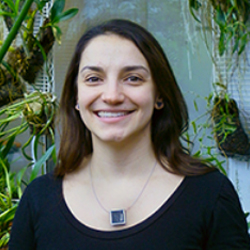 A specialist in evolution and infectious diseases, associate professor Nicole Mideo teaches courses in evolutionary medicine, ecology and parasites in biological communities in the Department of Ecology & Evolutionary Biology.
A specialist in evolution and infectious diseases, associate professor Nicole Mideo teaches courses in evolutionary medicine, ecology and parasites in biological communities in the Department of Ecology & Evolutionary Biology.
She also facilitates advanced research projects for senior undergraduate students in addition to her graduate student supervision. Stephen Wright, chair of the department, cites the extraordinary impact Mideo has had on her students through a “reflective and responsive approach to her teaching.” Her enthusiasm in the classroom has even resulted in students switching majors to further engage in her areas of specialization.
By drawing connections to current events and popular science through news articles and podcasts, Mideo brings clarity to and stimulates interest in complicated empirical data and mathematical models of disease ecology and evolution. She “effortlessly makes dense subject matter funny, relatable and fascinating to the class,” said one student.
Mideo also encourages students to improve their science communication skills through public presentations and creative writing assignments as well as science communication engagements outside the University.
Her steadfast commitment to improving pedagogy extends to her mentorship of TAs and careful development and revision of tutorial materials. She also takes great care to incorporate inclusive and accurate approaches to teaching sex (as distinct from gender) in biology so that all students feel included in the topics under discussion. Finally, she has been internationally active in education-related initiatives, contributing to ongoing pedagogical research and resource development in teaching disease ecology and evolution.
Andrea Williams — A&S Writing-Integrated Teaching program
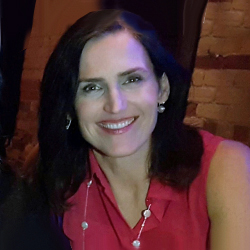 Andrea Williams leads the Arts & Science Writing-Integrated Teaching (WIT) program — an award-winning initiative that embeds writing instruction into undergraduate courses.
Andrea Williams leads the Arts & Science Writing-Integrated Teaching (WIT) program — an award-winning initiative that embeds writing instruction into undergraduate courses.
An associate professor, teaching stream in the Faculty of Arts & Science, Williams collaborates with instructors and units to help students learn a wide range of disciplinary writing genres and to integrate writing activities and instruction into lectures, labs and tutorials.
Williams’s expertise in teaching writing is a rich resource for instructors, TAs and students of all disciplines. Through courses, workshops and consultations, since 2011 she has helped design assignments and instructional activities that fit the unique goals of hundreds of courses in over 20 disciplines. She advises instructors on replacing traditional assignments and activities with innovative projects that are more meaningful to students and facilitate their learning in unique discipline-specific ways.
“Andrea’s work has made a great impact on courses and curricula across many units in Arts & Science,” says Pamela Klassen, chair of the Department for the Study of Religion and former A&S vice-dean, undergraduate.
Klassen lauded Williams’s dedication to “encouraging, empowering and teaching students through writing.” Her meticulous and thoughtful design and delivery of workshops and training has resulted not only in improved student outcomes, but also in valuable curriculum revision, innovative grading rubrics and increased efficiency across departments.

